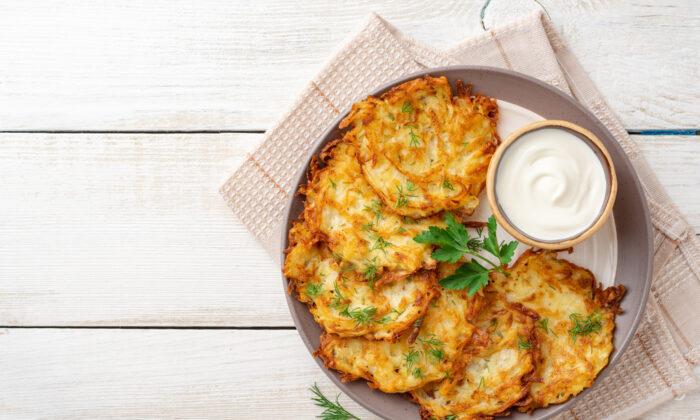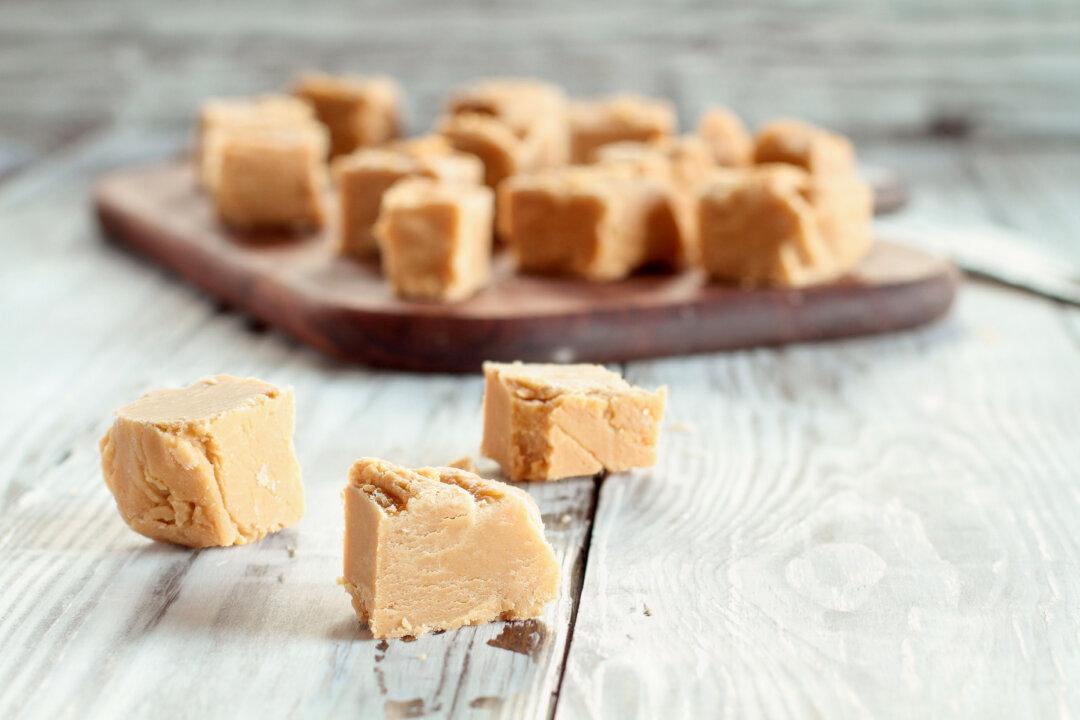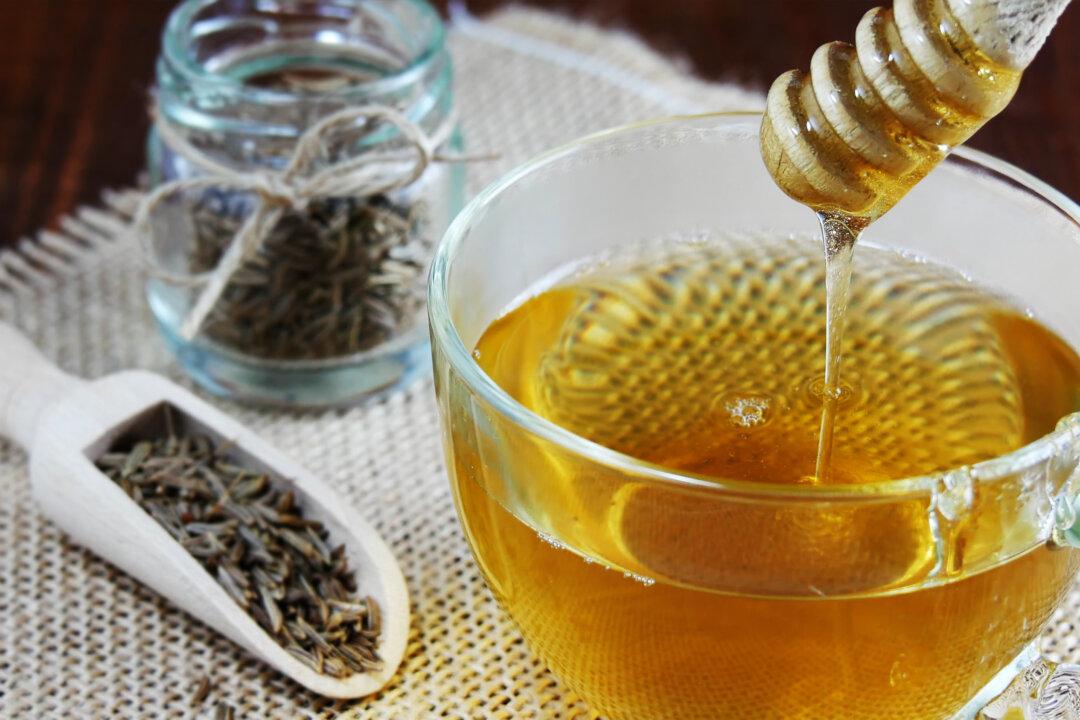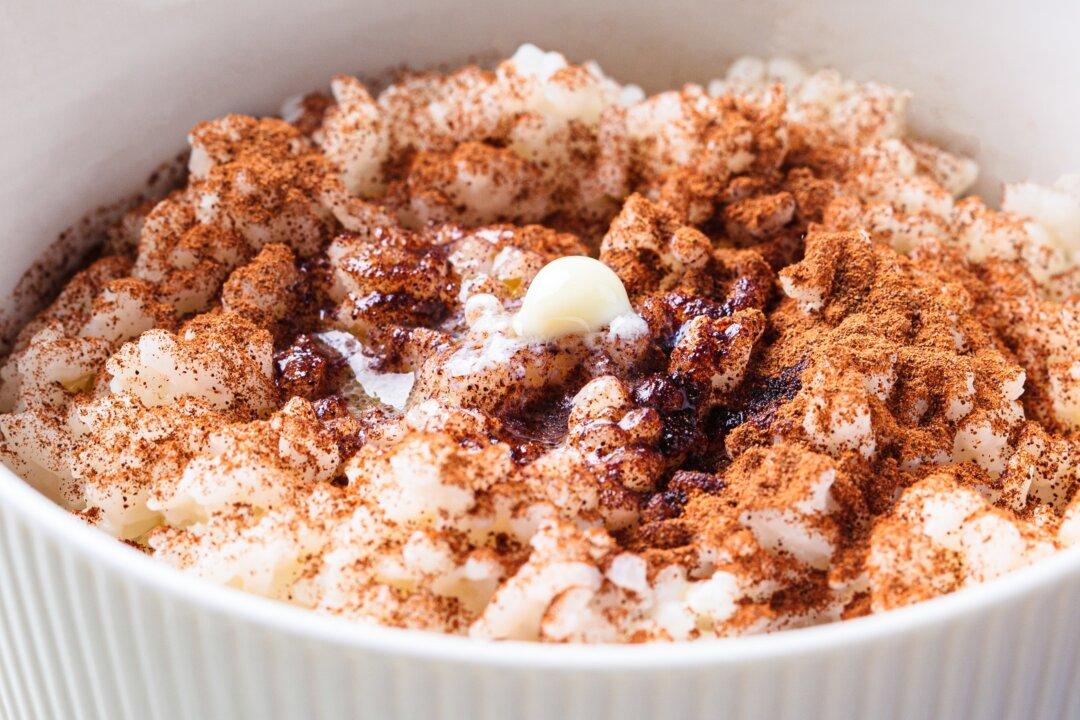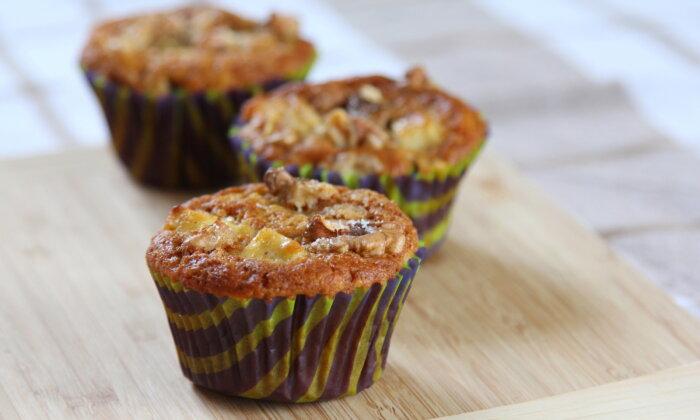Crispy and hot around the edges, sizzling Potato Latkes will be devoured as soon as they leave the frying pan. As this fun & hearty treat sizzles in the pan, it will warms your heart. Bright green scallions sprinkled on top add a light freshness. A dollop of yummy applesauce or sour cream adds cooling sweetness.
Servings: 2
Prep Time: 20 MINUTES
Cook Time: 10 MINUTES
INGREDIENTS
1/2 tsp Black pepper2 whole Eggs
4 whole Potatoes
1/2 tsp Salt (mineral salt)
1/4 c Shallots
2 tbsp Spelt flour
1/4 c Sunflower oil
PREPARATION OF THIS HEALTHY RECIPE:
- Grate your potatoes in a cheese grater. Place in a sieve over a bowl and let the water drain for 15 minutes. Pour off excess liquid.2. Mix in the chopped shallots, eggs, flour, salt and pepper.
- Heat 1/4 inch of oil over medium high heat in a large frying pan. Fry scoops of potato mix that make pancakes about 3-4 inches in diameter. Fry for 3-4 minutes, then flip. When the edges are crispy and the whole latke is golden on both sides, they are ready to eat!
- Serve with applesauce or sour cream or cottage cheese mixed with sour cream. Garnish with chopped chives.
How Can This Ayurvedic Recipe Make You Feel Great?
An Ayurvedic preparation of Latkes has several minor changes: instead of wheat flour, substitute easy-to-digest and lighter spelt flour. Potatoes can be a little hard to digest because of their cold and heavy qualities. Black pepper is a remedy because it stimulates digestion. Sunflower oil lubricates the digestive tract and counteracts potato’s dryness. If you’ve never experienced potato’s dryness, compare the difference between a baked potato and a latke. The baked potato may leave your mouth feeling parched. Many people who suffer from gas and bloating will be surprised to find that it’s often due to dryness, so have a latke!Why Eat an Ayurvedic Diet?
Eating Ayurvedically makes you feel nourished and energized. An Ayurvedic diet is tailored to your individual body type and the specific imbalances you are working with at any given time. Ayurveda shows you your specific body type’s needs and what should be favored in your Ayurvedic menu. Watch as you eat less but feel more satisfied because what you are eating truly nourishes you. Since Ayurveda believes all disease begins in the digestive tract, food is your first medicine. By eating a healthy diet that’s ideal for your body, you experience optimal health.The Three Doshas / Body Types
According to the biocharacteristic theory of medicine, people tend to get sick, over and over again, due to habitual causes and imbalances that are unique to the person. Your body type summarizes this tendency, showing you the ’type' of conditions and imbalances that frequently challenge your health & wellness. Using body type, you can also identify remedies likely to improve your strength and resiliency. Your body type identifies physical and mental characteristics as well as your personal strengths and weaknesses. The calculation of your body type is based on your medical history.The 3 functional body types (doshas), are Catabolic (Vata), Metabolic (Pitta), and Anabolic (Kapha). Catabolic individuals tend to break down body mass into energy. Metabolic individuals tend to burn or use energy. Anabolic individuals tend to store energy as body mass. Catabolic people tend to be easily stimulated, hyperactive, underweight and dry. Metabolic people tend to be rosy-cheeked, easily irritated, focused, driven, and easily inflamed. Anabolic people are heavy, stable and grounded, but if they store too much energy, they could gain weight easily and have congestion.
The above recipe pacifies Vata, Pitta and Kapha

